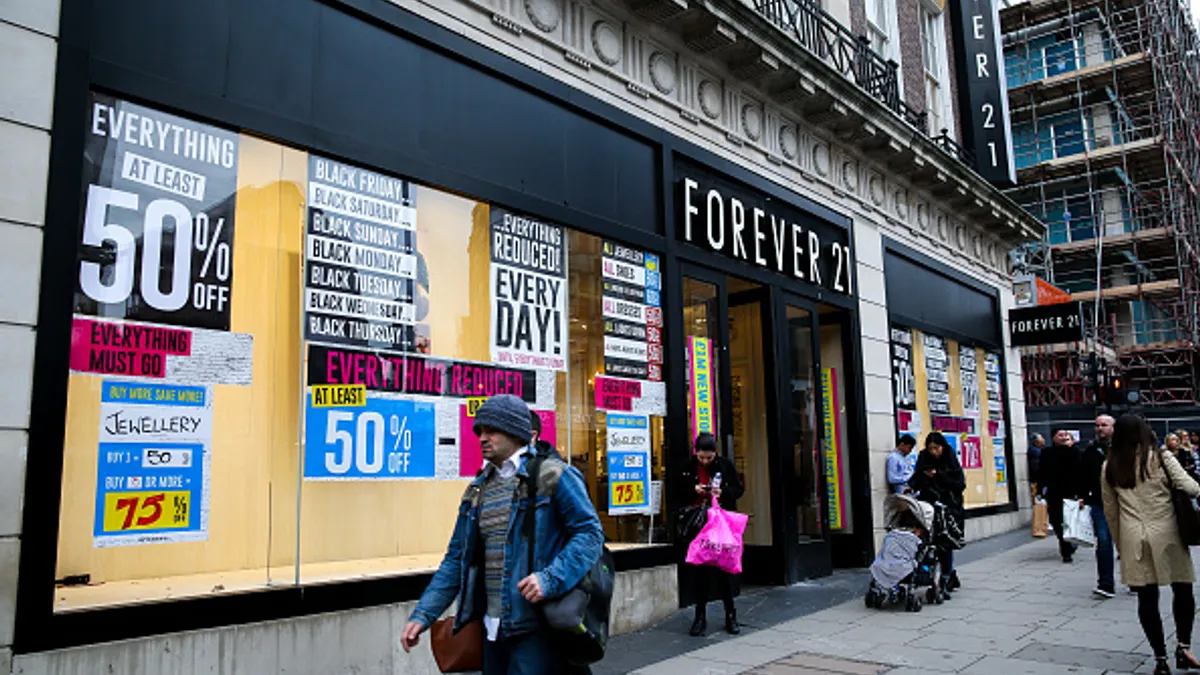Not long ago, Simon Property Group was pushing to lift federal restrictions on real estate investment trusts’ ability to own or part-own their tenants. But last year, the company said it may divest of its ownership of retailers and brands within five or 10 years, and now that process appears to be underway.
CEO David Simon on Monday said the REIT has reduced its stake in brand management firm Authentic Brands Group, from just under 12% to just under 10%, for $300 million in cash. That news comes a few months after the company said it had reduced its stake in Sparc, co-owned by Simon and Authentic, which licenses the brands Forever 21, Brooks Brothers and other labels (from Authentic), and runs their operations.
On a call with analysts, David Simon said these have been “by and large, very good investments” but that the company’s “strict adherence to creating value” compels it to return the capital to its core operation if that’s where the growth is.
“Some of these are bigger investments, so it's not easy to do it in one big swoop,” he said. “But we're very focused on portfolio management of those assets."
In addition to Sparc and Authentic, Simon’s retail portfolio includes co-ownership of J.C. Penney, with Brookfield; e-commerce company Rue Gilt Groupe; and real estate investment and management company Jamestown.
Simon has previously acknowledged that the retail businesses are by nature more volatile than the company’s core real estate enterprise, and emphasized their minor role within the REIT. The retail portfolio missed its internal expectations and declined throughout 2023, a performance in stark contrast to what David Simon noted was especially healthy results the previous two years.
In the fourth quarter last year, net operating income from the retail investments fell 22.4% to $97 million, and for the year tumbled 60.9% to $138.7 million, according to a press release Monday. J.C. Penney in particular has struggled. In its most recent quarter, net sales fell 10%, with net income plunging 65% to $36 million, though margins expanded, store traffic increased and inventory was down.
This year, David Simon said the portfolio’s operations are expected to notch another loss in Q1, be relatively flat in Q2 and Q3, and perform best in Q4, recovering somewhat from 2023 to 2024.
“The team ... again we're partners, so it's not just us, are making significant efforts within their own business to improve performance,” David Simon said.












